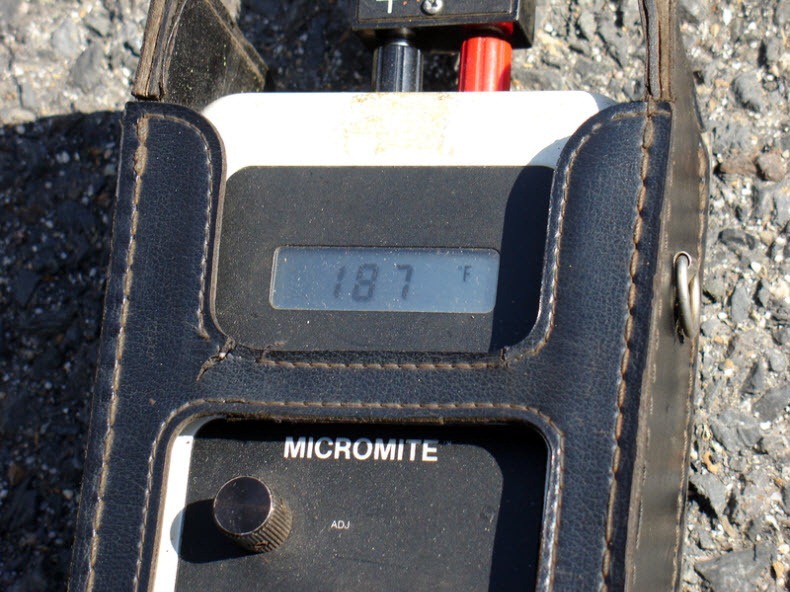The flames on the surface were successfully extinguished, but unbeknownst to the fire fighters, the coal continued to burn underground. Over the following weeks it rapidly migrated into the surrounding coal mines and beneath the town, venting hot and poisonous gases up into town, through the basements of homes and businesses. For the next two decades, workers battled the fire, flushing the mines with water and fly ash, excavated the burning material and dug trenches, backfilled, drilling again and again in an attempt to find the boundaries of the fire and plan to put the fire out or at least contain it.
All efforts failed to contain the fire. By the early 1980s the fire had affected approximately 200 acres and homes had to be abandoned as carbon monoxide levels reached life threatening levels.

The fire, smoke, fumes and toxic gases that came up through the back yards, basements and streets of Centralia literally ripped the town apart. The town had an original population of 1100 residents, which dwindled to a dozen in 2005. Most of the homes were abandoned and residents were relocated over the years with grants from the federal government although some refused to be bought out and some still remain in the town.
In its prime, Centralia was a vibrant community with five hotels, seven churches, nineteen general stores, two jewelry stores, and about twenty-six saloons. Today Centralia is a ghost town with only a few remaining residents. Unoccupied homes and buildings were demolished, and large portions of the town are being reclaimed by nature.
The fire still burns today beneath about four hundred acres of surface land, and it’s still growing. There is enough coal underground to feed the fire for up to two hundred and fifty years, but it may burn itself out in as few as one hundred years.


Thermocouple reading of a temperature probe approximately 10 feet down into a survey hole in Centralia, Pennsylvania.

Aerial view of Centralia.

Capped bore holes in the streets that were used to monitor the temperatures below.



Antique picture of Centralia, before the fire. Date unknown.

Antique picture of Centralia, before the fire. Date unknown
Source
